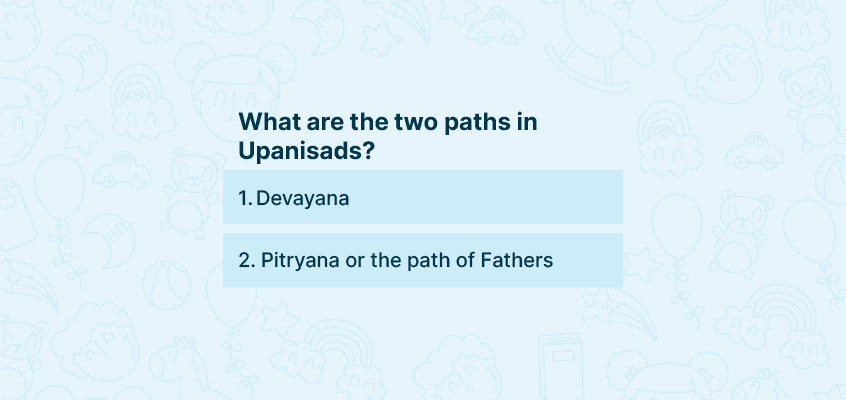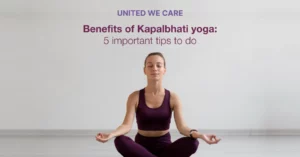What is a Upnisad?
Upnisad, also known as Vedanta, is a significant religious text that forms Hindu philosophy. It explains the real meaning of Sanatan Dharma or Eternal Path. These are the most recent parts of the oldest scripture of Hinduism or the Vedas. Upnisad contains recorded and documented information passed orally from the olden times and contains all the information about different philosophical aspects of life and relationships. These Upanishads emphasise concepts of charity, compassion, self-righteousness. They lead a person to the path of self-realisation. According to Hindu philosophy, there are over 200 Upnisads, but only ten are considered principal Upanishads.
Technically, the terms Upnisad and Yoga are interchangeable. Yoga is about learning sadhana to unite the soul and God. However, Upnisad scripts also teach Sadhna that brings God and the aatma(self) into the union. It destroys the bond that binds him to the external world and helps achieve self-realisation.
Our Wellness Programs
Looking for services related to this subject? Get in touch with these experts today!!
Experts

Banani Das Dhar

India
Wellness Expert
Experience: 7 years

Devika Gupta

India
Wellness Expert
Experience: 4 years

Trupti Rakesh valotia

India
Wellness Expert
Experience: 3 years
What are the two paths in Upnisad?
Chandogya Upanishad is a part of the Sama Veda of Hinduism. The teachings of this Upnisad focus on the importance of speech, language, and chants to a person’s quest for knowledge.
This Upnisad mentions Panchagnividya’s doctrine of ‘five fires and two-paths in the afterlife. The volume contains text related to reincarnation based on satisfactory and stinking conduct.
The two-path theories describe life beyond death. Afterlife, there are two states, namely:
- Devayana- A person has led a life of knowledge, leading to the path of Devas or Gods. A person who has experienced forest life(Vanaspati) or been faithful, truthful and knowledgeable throughout his life does not return to earth. Such people are genuine seekers of the knowledge of Brahman and become a part of it post-death.
- Pitryana or the path of Fathers: This path is for someone who wants to lead a life of rituals, sacrifices, social service, and charity. Such people reach heaven but can stay based on their merits achieved in life before death. Based on their conduct, after that, they return to earth in the form of trees, herbs, rice, beans, animals or human beings.
Turiya, Kaivalya and Gyan- What does it all mean?
In our lives, we face three states of consciousness: waking state, dream sleep state, and deep sleep state. Besides these three states, the fourth state of consciousness is Turiya. In Advaita Vedanta, it is an insight into self-inquiry. The ultimate aim of self-inquiry is to put a permanent end to suffering. Turiya is the state of Eternal Witness, which is the substrate of the other three consciousness states.
Kaivalya or ‘separateness’ is an individual’s consciousness achieved by realising that ‘Purusha’, i.e., self or soul, is separate from matter or ‘Prakriti’. Purusha is constant while Prakriti is changing. As a result, Purusha or soul always gets attracted towards Prakriti or nature and ignores its true nature. The soul becomes bound to the world because of karma and undergoes incarnations. According to yoga, Kaivalya is ‘isolation’ or ‘detachment’ from the materialistic world.
Aatma, a Sanskrit term, refers to the self-existence of a human being. It refers to the pure consciousness and attainment of self-liberation or Moksha. A person needs to be well-versed with self-knowledge or Aatma Gyan to attain liberation. Unlike body, mind or consciousness, Aatma is eternal, imperishable and beyond time.
How did the concept of Upnisads come about in Hinduism?
Upanishads, collectively known as Vedanta, are the last part of Vedas. Upanishads are derived and contain revealed knowledge. Man does not make these. During the sacrificial ceremonies, there was a practice to chant Vedic rituals publically in ancient times. However, Upnisads were preached in private only. Upanishads contain supreme knowledge about inner-self and transcendental states of awareness. Since the bygone era, Upnisads have attracted scholars from multiple religions. However, it does not contain any definitive philosophy and is, therefore, a matter of conflict.
Bhagavad Gita, part of the epic Mahabharata, is a brief knowledge of Upanishads. Gita teaches a person to purify his soul and discover the purpose of life with honesty, kindness and integrity.
Upanishads are vital for the development of Brahman God, the supreme soul, who created the universe, and the realisation of inner-self, which aims to unite with God.
Your take-home message from this post
Turiya and Kaivalya are very important to permeate all levels of reality and superconsciousness. It is the superimposition of wakefulness, dreams and dreamless sleep to attain pure consciousness. Turiya is an awareness beyond deep sleep in which the superconscious becomes active. A person experiences the ever-new bliss of Satchidananda. In this state, an individual experiences the subtle aspect of Brahmin or infinite self-representing their spiritual union. He realises his true nature is free from delusions and duality in the external world. Once a person has achieved the state of self-awareness, he longs for Kaivalya or Moksha.
Kaivalya is the ultimate state of enlightenment to reach Moksha or nirvana. It is the practice of detachment from relationships, egoism, aversion, and the cycle of birth and death. A person can achieve all this by practising yoga, austerities and discipline. A kaivalin is independent of the modifications of the mind and concentrates only on the inner-self. He is fearless and free from complications.
Turiya and Kaivalya are the paths to achieving enlightenment and understanding the essence of life. They are holistic states to gain absolute self-freedom, self-liberation and timeless serenity. Yogic practice, OM chanting and meditation are unique ways to get calm, profound stillness and silence.



















